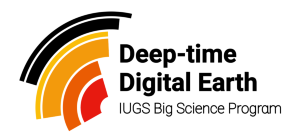
An international program is turning to the world’s scientists to determine the most pressing global challenges.Credit: Alain Barbezat/500px Prime/Getty
From ecosystem change and soil quality to hydrology and natural hazards, Earth studies have never been so important. But in a crowded field of concerns, how can researchers prioritise the most important questions?
Scientists at the Deep-time Digital Earth (DDE) Big Science Program — a major international initiative — are turning to their global colleagues to find out. They have created a list of 30 trending topics across the geological sciences, and will invite researchers from around the world to vote and select the top 10 trends.
The survey will be hosted on DDE’s website, and Springer Nature is collaborating with DDE in getting the poll out to a wide range of researchers from April 18 to June 15, 2024.
“These 30 topics reflect the latest trends and advancements in geosciences and have the potential to address real-world problems that are closely related to society, science, and technology,” says Hans Thybo, chair of the Science Committee of the DDE Big Science Programme. "By involving global experts in the voting process, we hope to determine the most important and relevant research areas, guiding future Earth science research.”
To whittle down years of progress and research findings to just 30 topics, they used a combination of expert-driven and data-driven approaches, says Thybo.
“It integrated expert knowledge, data from literature, and co-citation methods to achieve a moderate level of granularity for the trends,” he explains. The final collection of trends covers research topics spanning five domains: deep space, deep time, deep Earth, habitable Earth, and big data.
See the shortlisted topics and cast your vote here.
Decadal progress
The vote comes as the DDE Big Science Program is set to publish a new report that assesses progress in the geosciences over the past decade. This report aims to provide “valuable insights into major research breakthroughs, research methods, and solutions to significant scientific problems in Earth sciences,” Thybo says.
The DDE Big Science Program was launched in 2018. Initiated by International Union of Geological Sciences — in cooperation with professional associations, academic institutions and scientists around the world — the programme aims to harmonize ‘deep-time’ digital geological data and facilitate data-driven discovery in the understanding of Earth’s evolution.
Deep-time data relate to the changing processes that the Earth has experienced through millions of years of geological time. They include data on the evolution of life and climate, tectonic plate movement and the evolution of the planet’s geography.
Through the programme, data will be made available in accessible hubs, providing insights into the distribution and value of resources and materials, as well as hazards. It could also help researchers reveal a clearer picture of the Earth’s geological past, while providing insights into the planet’s future.
The survey on the top 10 topics aims to reach 140,000 to 150,000 people through various channels and generate a minimum of 5,000 votes. The results will be published in the report during the International Geological Congress in August 2024.
“Through the vote, we hope to identify emerging research trends, and areas that require further investigation in geosciences,” says Thybo.
See the shortlisted topics and cast your vote here.


